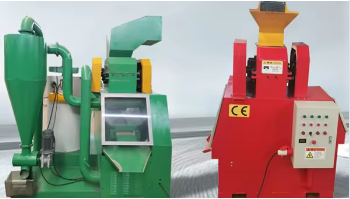

Σεπ . 22, 2024 14:59 Back to list
The Importance of Scrap Metal Plants in Sustainable Development
In today's industrial landscape, scrap metal plants play a crucial role in promoting sustainability and reducing environmental impact. As the demand for metal continues to rise, the recycling and processing of scrap metal have become essential to conserve resources and minimize waste. These plants serve as pivotal points in the circular economy, where materials are reused, refurbished, and recycled, leading to numerous environmental and economic benefits.
Scrap metal plants process various types of metals, including steel, aluminum, copper, and brass. By collecting discarded metal items from various sources, such as old vehicles, appliances, industrial waste, and construction debris, these facilities prevent valuable materials from ending up in landfills. Instead, the metals are sorted, cleaned, and processed into reusable forms, significantly reducing the need for virgin materials. This recycling process not only preserves natural resources but also diminishes the energy consumption associated with metal extraction and production.
One of the key benefits of scrap metal recycling is its positive impact on greenhouse gas emissions. The production of metal from raw ore involves significant energy input and emits substantial carbon dioxide and other pollutants. In contrast, recycling metals use considerably less energy—up to 95% less for aluminum and about 74% less for steel. By facilitating the recovery of metals, scrap metal plants contribute to lower emissions, aligning with global efforts to combat climate change.

Furthermore, scrap metal plants also have considerable economic implications. The recycling industry creates numerous jobs, from collection and processing to transportation and sales. This sector not only offers employment opportunities but also stimulates local economies by sourcing materials locally and supporting small businesses. Additionally, recycling scrap metal can lower the costs of raw materials for manufacturers, providing them with a competitive advantage.
Despite the numerous benefits, scrap metal plants face challenges, including regulatory hurdles and market fluctuations. Stricter environmental regulations require plants to adopt advanced technologies to minimize pollution and ensure compliance. Moreover, fluctuating metal prices can significantly impact the financial stability of these facilities, making it essential for operators to stay agile and responsive to market conditions.
In conclusion, scrap metal plants are vital components of a sustainable future. They conserve natural resources, reduce energy consumption and greenhouse gas emissions, and promote economic growth through job creation and local sourcing. As industries increasingly emphasize sustainability, the role of scrap metal recycling will continue to grow, making these facilities not only necessary but also invaluable in our collective efforts to build a greener, more sustainable world. It is imperative to support and invest in the growth of scrap metal plants, ensuring they are equipped to meet both current and future demands in the face of environmental challenges.
Latest news
High-Efficiency Copper Wire Granulators | Best Price for Sale
NewsAug.28,2025
Eddy Separator for Non-Ferrous Metals
NewsAug.22,2025
E Waste Bin for Collected Spray Cans: Sustainable Disposal Solutions
NewsAug.22,2025
Dual Shaft Shredder with Adjustable Blade Gaps
NewsAug.22,2025
Hammer Crusher Machine With Secondary Crushing
NewsAug.22,2025
Copper Granulator Our Promise of Recycling Excellence
NewsAug.22,2025